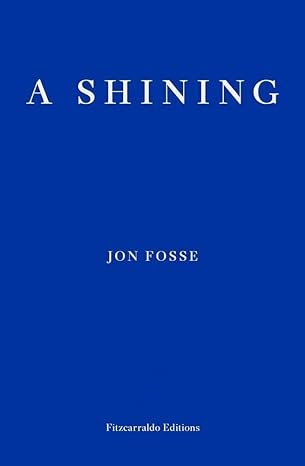
Original language: Norwegian
Original title: Kvitleik
Translation: Carolina Moreno Tena in Catalan for Galaxia Gutenberg and Cristina Gómez-Baggethun for Random House
Year of publication: 2023
Valuation: recommendable
I must confess that Jon Fosse was a real stranger to me (and I think it is something that extends to the members of ULAD) since we did not have any book reviewed by the recent winner of the Nobel Prize in Literature. So, between the fact that he has been worthy of such a recognized award, along with the fact that he is a Norwegian author (Scandinavian literature being one of my favorites), he has made me delve into getting to know his work.
In this short story, which begins in media res, without apparently having any purpose, it seems that author and protagonist share that momentary emptiness that the protagonist shares and exposes by acknowledging that “he couldn’t think of anything he wanted to do. So I did anything. I got into my car and drove (…) I kept driving until the car was completely stuck. I tried to turn around, but I couldn’t, so I stopped the car” and “I felt empty, like boredom had turned into emptiness.”
This is how this very short book begins, with the protagonist sharing an anxiety about finding himself at the end of a rural road with no possibility of turning around, without the option of turning back on “the most boring road one can drive on.” There, at the end of the road, he sees that he has no way out, that in front of him there is only a large forest that rises intimidatingly. And he confesses, with this great metaphor about what we sense is his life, his loneliness and his routine. And in search of a farm where he can find someone to help him, perhaps someone with a tractor, he begins to walk without knowing which direction to take. And he starts to snow, and he starts to get cold, and he thinks that “I’m going to freeze to death” and that “maybe that’s why I walked into the forest, to freeze to death.” “But I don’t want to die.” And he begins to snow, and to get dark, and he continues swimming in the darkness. And in the darkness he sees a glowing white silhouette, perhaps of a person, later of a couple, who knows.
With a clear allegorical sense about the journey, the loss and the path that opens (or closes) before us, the book is an internal monologue without pauses, in which the narrator relates the constant internal contradictions between what he wants and what he wants. what not, what it should do and what it does. With an apparently simple style, Fosse’s prose captures you, submerges you as a reader also in that forest and that internal monologue is shared with the protagonist, finding yourself as a reader surrounded by trees and snow and cold and loneliness, but an almost comforting loneliness at the same time. despite being lost, alone, hungry and thirsty. Because the more you delve into reading and solitude, the more you feel enveloped in that strange symbiosis that the narrative produces in you, and, as happens to the protagonist, you don’t know whether to go deeper into it, into that overwhelming darkness, or move away. her.
Source: https://unlibroaldia.blogspot.com/2024/02/jon-fosse-blancura.html


